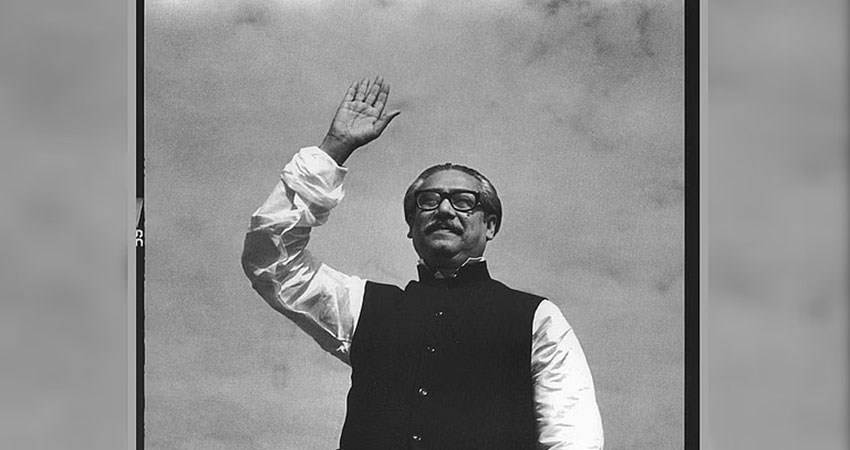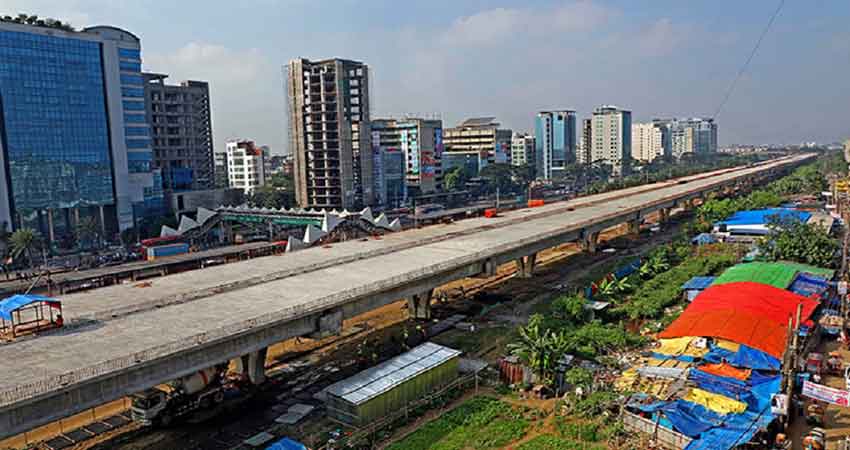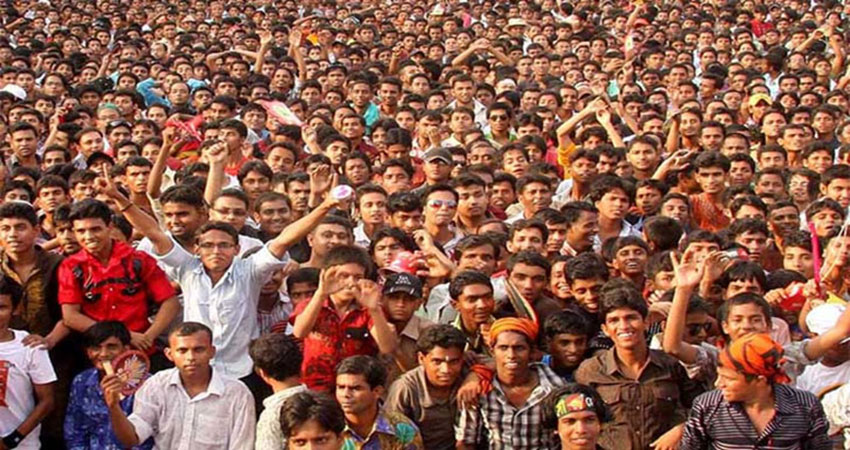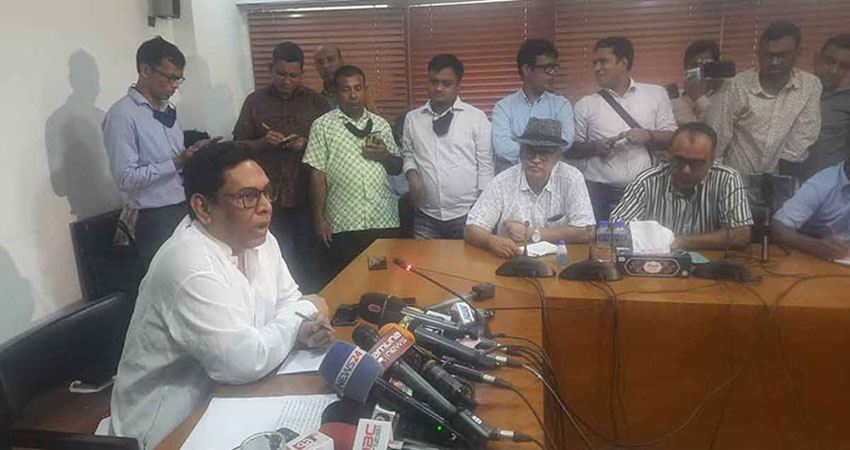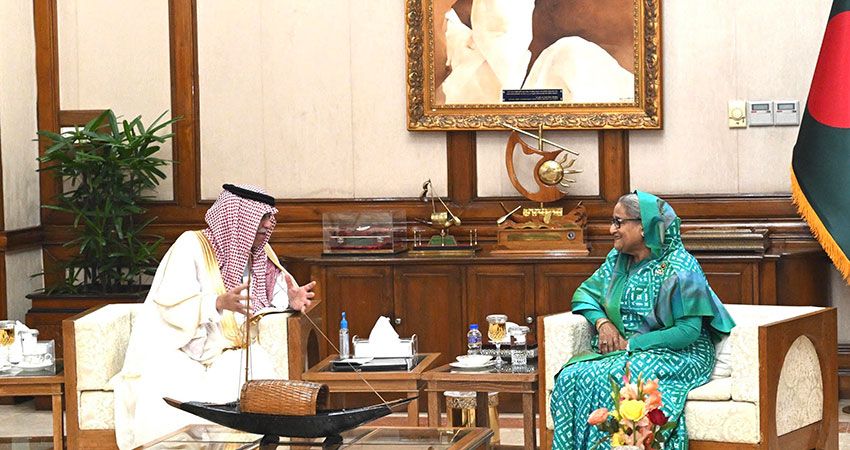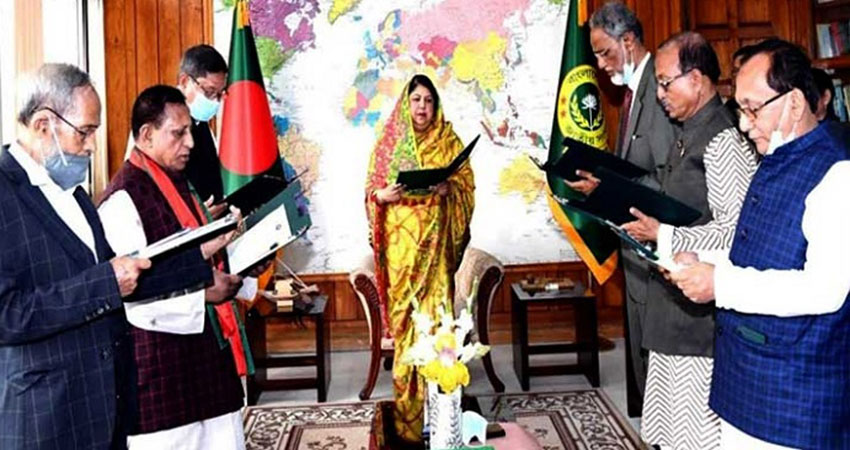The nation is mourning the passing of Bangabandhu Sheikh Mujibur Rahman as the government is planning to identify those behind the assassination of the Father of the Nation in the massacre of his family on Aug 15, 1971.
On this day in 1975, the nation’s independence hero was assassinated at his Dhanmondi 32 house along with most of his family members by some rogue soldiers in one of the bloodiest political assassinations in the world.
The day is observed at the state level as the National Mourning Day in memory of the victims of the military putsch.
In his message marking the day, President Mohammed Shahabuddin said Bangabandhu will remain an eternal source of inspiration not only for Bangladeshis, but also for freedom-seeking people of the world.
Not only did Bangladesh lose the Father of the Nation in the massacre, but it also started a journey backwards, plunging into the darkness of Pakistan-style military rules, just four years after liberation.
The killers – a group of rogue army officers – could not be tried because of an Indemnity Ordinance. Finally, when Bangabandhu’s Awami League party returned to power in 1996, with his daughter Sheikh Hasina at the helm, the government paved the way for the trial of the assassins.
Now, more than a decade after executing some of the Bangabandhu murder convicts, the government has drafted a law to form a commission to identify those who plotted the murder.
The draft law will be placed in parliament after getting Hasina’s greenlight, Law Minister Anisul Huq said recently.
"Hopefully, names of those who were behind the conspiracy to assassinate the Father of the Nation will also come out one day,” Hasina said in her National Mourning Day message.
After the Indemnity Ordinance was scrapped to make way for the trial of the killers, the court sentenced 15 people to death for the Aug 15 carnage.
The top court upheld death penalties for 12 of them.
One of the convicts died overseas, seven of them were executed while four of them are still on the run.
Hasina herself claims that Gen Ziaur Rahman, who became the first military ruler of Bangladesh after Bangabandhu’s killing, was involved in the assassination of the Father of the Nation and his family.
In 1981, a commission was formed in the UK to investigate Bangabandhu’s murder but the members of the panel were blocked from entering a Zia-governed Bangladesh.
A year later, the commission published an initial report blaming the then government for not allowing “legal and judicial processes” over the assassination to proceed.
THE DAY
Neither Bangabandhu’s 10-year-old son Sheikh Russell nor nephew Sheikh Fazlul Huq Moni’s pregnant wife Arzoo Moni was spared during the massacre at Dhaka’s well-known landmark, Dhanmondi 32. Hasina and her sister Sheikh Rehana survived the carnage as they were in Europe.
Besides Moni, the others included Bangabandhu’s wife Bangamata Sheikh Fazilatunnesa Mujib, brother Sheikh Naser, brother-in-law Abdur Rab Serniabat, sons Sheikh Kamal, Sheikh Jamal, daughters-in-law Sultana Kamal and Rosy Jamal.
The president’s Military Secretary Bir Uttam Colonel Jamil Uddin Ahmed, who rushed to the Bangabandhu Bhaban at Dhanmondi 32 on receiving SOS from him early in the morning, was also slain on the way.
Bangabandhu was buried in his hometown Gopalganj’s Tungipara and the others at Banani graveyard.
To mark the day, special prayers will be held at mosques, temples, churches and pagodas across the country. Bangabandhu’s party the Awami League will organise programmes to feed the poor.
Black flags will be flown while the people will wear black badges. Discussions and rallies will also be held.
State broadcasters BTV, Betar and private stations are airing special programmes marking the day. The newspapers are publishing special reports and supplements.
Bangladesh mourning founding father Bangabandhu on Aug 15 massacre anniversary
